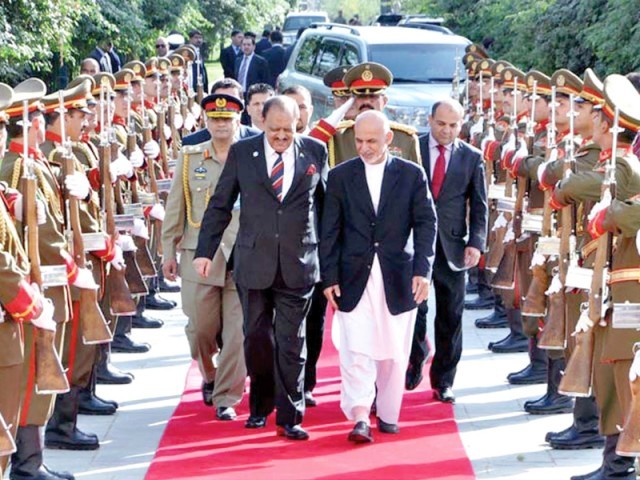Afghanistan Welcomes A New President
Afghan President Ashraf Ghani welcomes President Mamnoon Hussain at Presidential Palace in Kabul.
October 6, 2014
On Monday, September 29th, Afghanistan had its first democratic transfer of power since the massive defeat against the Taliban in 2001. Ashraf Ghani Ahmadzai, a 65 year old numbersbased man
who once worked at the World Bank, was elected president with a 55% popularity in the vote. When Ghani hugged the defeated rival after elections, the two sides seemed eager to bridge across existing factions. The absence of hatred between political parties would be extremely beneficial in avoiding a deep, destructive separation like what has ripped apart Iraq and caused the establishment of ISIS.
The peaceful introduction of the new Afghan president is refreshing after the rule of Hamid Karzai, who frequently criticized the United States’ government, with inflexible views and ideas. Karzai was known for his inaction on the corruption in his own government, but thoughtfully assisted in drafting a constitution that prohibits him from serving a third fiveyear term, but benefits Afghanistan (BBC News).
Ghani is taking steps to create peace with the United States and signed an agreement that provides a framework for the US to sustain 9,800 troops in the country in order to assist Afghan
national security forces, and will leave only about 1,000 US troops in 2016. Ghani’s cooperation with the US does not instill many hopes in the termination of the Taliban, however, since the group continues to hold a strong force in the region.
In addition to his hopes of settling international affairs, Ghani wants to focus on internal issues as well. He said that social, political, and economic corruption will be tackled, emphasizing his separation from the ways of Karzai. The Afghan president also introduced a strong stance on women’s rights, since he stated that women will play a prominent role in the government in the near future. Supporting this idea, he introduced his wife to the country, again contrasting himself against Karzai, whose wife almost never appeared in public (ABC).
In one of his first national addresses as president, Ghani wanted to convey that “I am not better than anyone from among you. If I do any good, give me your support. If I go wrong, set me right” (Al
Jazeera).


































